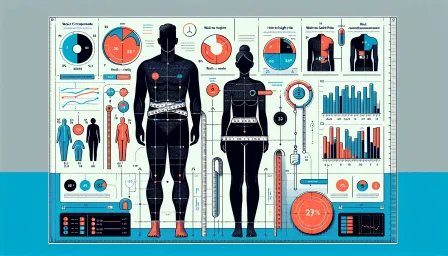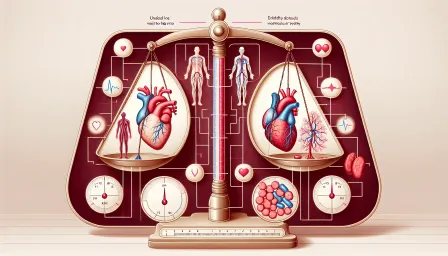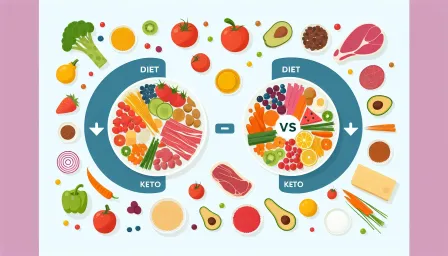Top Strategies for Weight Loss Maintenance After Keto Diet

Discover the top strategies for maintaining weight loss after following a keto diet with our authoritative and well-researched guide.
Transitioning from a keto diet to a more sustainable long-term eating plan can be challenging, yet it's crucial for maintaining the hard-earned weight loss. This article provides expert strategies to help you navigate this post-keto phase successfully.
Understand Your New Metabolism
One of the most important steps in weight loss maintenance after a keto diet is to understand your new metabolism. After a period of ketogenic eating, your body's metabolism may have adapted to utilizing fats as its primary energy source. Transitioning back to a more carb-inclusive diet requires careful adjustment to avoid sudden weight gains.
Gradually Reintroduce Carbohydrates
The Importance of Slow Transition
Reintroducing carbohydrates gradually is crucial in preventing the rapid gain of body fat. Start with low glycemic index (GI) carbohydrates, such as vegetables, beans, and whole grains. Monitor your body’s response to these food groups and adjust accordingly to ensure gradual, sustainable weight maintenance.
Effective Carb Cycling
Carb cycling, where you alternate between high-carb and low-carb days, can be an effective strategy. This helps in managing insulin sensitivity and avoiding the drastic effects on weight that can come from sudden carbohydrate reintroduction.
Maintain a Balanced Diet
Prioritize Protein Intake
Protein is critical in preserving muscle mass, which in turn helps maintain a higher metabolic rate. Aim to incorporate lean proteins like chicken, fish, and legumes into your meals. Protein also provides satiety, helping you to feel fuller for longer and reducing the likelihood of overeating.
Healthy Fats Matter
Continue including healthy fats in your diet, such as those derived from avocados, nuts, and olive oil. These fats support hormone regulation and can help in maintaining the metabolic benefits gained during the keto diet.
Monitor Your Caloric Intake
Even though calorie counting is not a primary focus of the keto diet, it becomes essential during weight maintenance. Understand your daily caloric needs and try to adhere to them to prevent weight regain. Tools like calorie tracking apps can be invaluable in this regard.
Engage in Regular Exercise
Strength Training
Strength training helps in building muscle mass, which increases your resting metabolic rate (RMR). A higher RMR means you burn more calories even when you're not exercising. Incorporate activities like weight lifting or resistance training sessions at least 2-3 times a week.
Cardiovascular Workouts
Cardio exercises such as running, cycling, or swimming are also essential. Aim for at least 150 minutes of moderate-intensity cardio each week to maintain cardiovascular health and supplement weight maintenance efforts.
Stay Hydrated
Hydration plays a key role in maintaining weight loss. Drinking water before meals can help you to feel full, thereby reducing the risk of overeating. Moreover, hydration is vital for muscle function and overall health, supporting your ability to maintain a balanced diet and exercise regimen.
Manage Stress and Get Adequate Sleep
Stress and lack of sleep can negatively impact weight maintenance. Elevated stress levels can lead to emotional eating, while inadequate sleep affects hormonal balance, which can prompt weight gain. Incorporate stress management techniques such as meditation, yoga, or even simple breathing exercises. Ensure you get around 7-9 hours of quality sleep each night to support your weight maintenance goals.
Regularly Track Your Progress
Regular tracking of weight, body measurements, and dietary habits provides insights that are crucial for long-term success. Adjust your strategies based on these metrics and seek professional guidance if necessary to stay on track towards your weight maintenance goals.
Seek Continued Support
Engage with communities or support groups focused on weight maintenance and healthy living. Having a support system provides motivation, encouragement, and accountability. Professional support from dietitians or nutritionists can also help tailor a personalized plan that aligns with your lifestyle and goals.
Conclusion
Maintaining weight loss after a keto diet can be challenging but is manageable with the right strategies. By understanding your metabolism, reintroducing carbohydrates gradually, maintaining a balanced diet, monitoring caloric intake, exercising regularly, staying hydrated, managing stress, getting adequate sleep, tracking progress, and seeking support, you can sustain your weight loss and enjoy long-term health benefits.



























